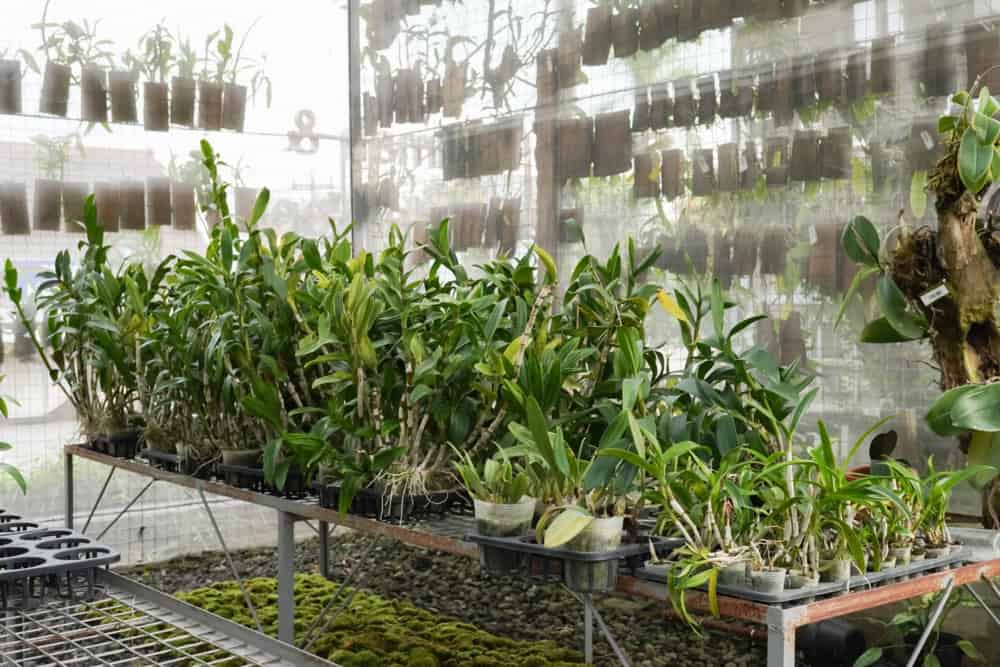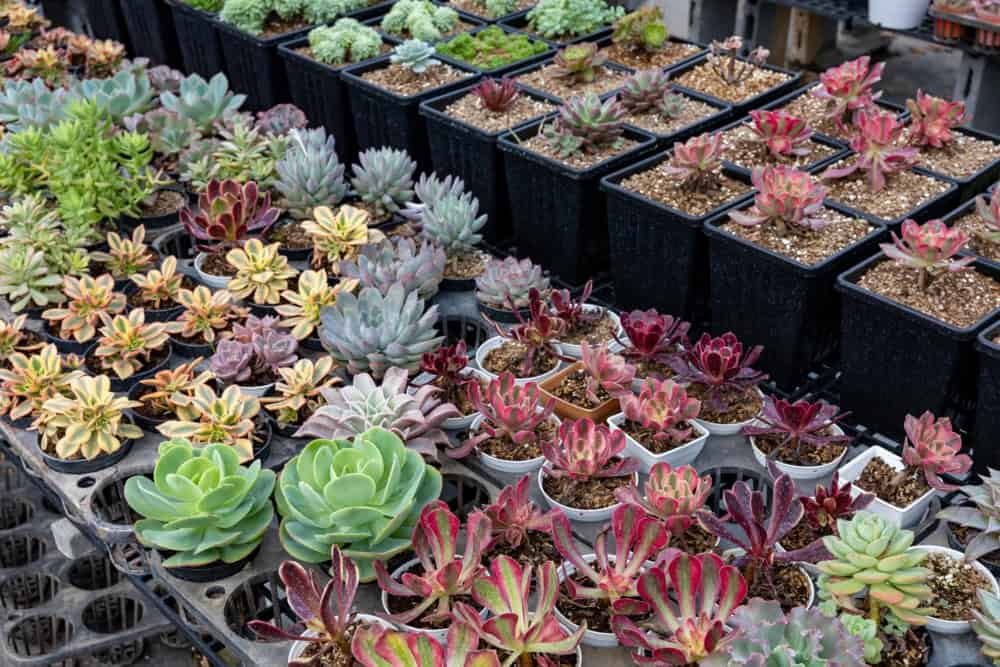
Growing seedlings is the foundation of healthy plant development. To ensure that seedlings grow strong, disease-free, and ready for transplanting efficiently, a "nursery" plays a crucial role. It creates an optimal environment for seedling growth. This article provides insights into preparing a nursery and key considerations for seedling care within a greenhouse or nursery. Follow along to learn more!
Preparation for Building a Nursery
If you plan to build a nursery or greenhouse, thorough preparation is essential for smooth construction, effective results, and meeting your goals. Here are the key steps:
- Define objectives and requirements: Determine the nursery size appropriate for the type and quantity of seedlings to be grown.
- Research: Gather information about nursery types, materials, and designs suitable for the plants being grown.
- Select an appropriate location: Look for an open area with good ventilation near a water source. The soil should ideally be sandy loam to ensure good drainage.
- Consider suitable climate conditions: Ensure the location's climate, including temperature, humidity, and sunlight, meets the seedlings' growth requirements.
- Prepare materials and tools: Choose suitable materials for different parts of the structure, such as the framework, roofing, internal equipment, and propagation tools.

4 Techniques for Managing a Tree Nursery
Proper nursery management helps produce high-quality, robust seedlings ready for planting or sale. Effective care and management at every stage, from nursery setup to pest control, are essential. Here are four recommended techniques:
1. Building the Nursery
Nurseries can vary in size depending on the needs, typically measuring around 6x7 meters or 6x10 meters, with a height of 2.5-3 meters. Construction materials can include old wood, bamboo, and palm leaves for simple and economical nurseries.
For the roof, shading nets or mesh are commonly used to provide protection. They are often shaped as arches or triangles, installed at a height of about 3 meters from the ground. The covering should be stretched tightly to prevent sagging and reduce water retention during rainfall. Following these guidelines helps create an efficient nursery for producing quality seedlings.
2. Managing Soil, Fertilizer, and Water
High-quality seedling propagation depends on proper management of soil, fertilizer, and water, as detailed below:
- Using fertilizers: Mix organic and chemical fertilizers in ratios suited to the seedling type for balanced nutrients.
- Watering: Adjust water volume and frequency based on the species' needs, considering soil moisture and weather conditions.
- Soil care: Regularly check and improve soil quality to maintain nutrient balance and optimal soil structure.
Focusing on these factors ensures seedlings receive sufficient nutrients and moisture, promoting strong and high-quality growth.
3. Pest and Disease Control in the Nursery
Preventing and controlling pests and diseases in the nursery begins with selecting disease-free seeds or seedlings, enhancing resistance from the start. Regular health inspections of seedlings and preventive pest management methods are crucial. Biological methods, such as introducing natural predators, can be combined with safe chemical solutions when necessary.
Creating a suitable environment helps seedlings grow strong and resilient to diseases and pests.
4. Weed Control in the Nursery
Weeds are a significant issue in nurseries as they compete for water and nutrients. Weed control can be done manually in small areas or using mechanical tools for larger spaces. Mulching is another effective method to prevent weed growth. If chemicals are needed, select safe and effective options and use them sparingly.
For beginners, testing on small areas before applying methods to larger propagation zones is recommended. Care should be taken to prevent chemicals from affecting the seedlings being cultivated.
For beginners interested in building a plant nursery or greenhouse, valuable information and complete planting equipment are available at Chaiyo Farm. They offer a wide range of seeds, plants, and propagation tools. Products include peat moss, pots, fertilizers, and propagation trays. You can order products through the website or visit the store directly. For more information, contact info@chaiyofarm.co.th or call 02 015 0909.
References
- "การสร้างเรือนเพาะชำ ดูแลต้นอ่อน ไม้ดอกต่างๆ," สืบค้นเมื่อวันที่ 24 กรกฎาคม 2567, จาก https://www.m-group.in.th/article/บทความ/การสร้างเรือนเพาะชำ.html
- "วิธีการในเรือนเพาะชำ," สืบค้นเมื่อวันที่ 24 กรกฎาคม 2567, จาก https://www.forru.org/th/advice/วิธีการในเรือนเพาะชำ






